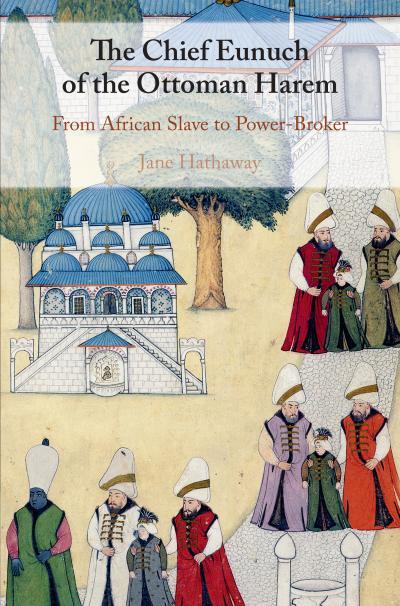The Chief Eunuch of the Ottoman Harem

Subtitle: From African Slave to Power-Broker
Hathaway, Jane
Cambridge University Press
Eunuchs were a common feature of pre- and early modern societies that are now poorly understood. Here, Jane Hathaway offers an in-depth study of the chief of the African eunuchs who guarded the harem of the Ottoman Empire. A wide range of primary sources are used to analyze the Chief Eunuch's origins in East Africa and his political, economic, and religious role from the inception of his office in the late sixteenth century through the dismantling of the palace harem in the early twentieth century. Hathaway highlights the origins of the institution and how the role of eunuchs developed in East Africa, as well as exploring the Chief Eunuch's connections to Egypt and Medina. By tracing the evolution of the office, we see how the Chief Eunuch's functions changed in response to transformations in Ottoman society, from the generalized crisis of the seventeenth century to the westernizing reforms of the nineteenth century.
- Uses an array of sources written in the original languages
- Incorporates the Chief Harem Eunuch's origins in Africa and his ties to Ottoman provinces such as Egypt and Arabia
- Places the Chief Harem Eunuch in the context of the Ottoman Empire's transformations between the sixteenth and early twentieth centuries
Reviews
Building on an impressive body of work on Ottoman Egypt and the Arab lands, and on the formidable early eighteenth-century Chief Harem Eunuch el-Hajj Beşir Agha, Jane Hathaway focuses here on the careers of these eunuchs and how the office evolved over time. She deftly brings her subjects out of the shadows to reveal the geographic and functional reach of their interests, which oscillated between the poles of Istanbul and Cairo, but also extended from guardianship of the Prophet's tomb to protection of the grain trade on the Danube. Hathaway has written a work with a strong narrative thread that is at once scholarly and accessible. Her careful research allows the Chief Harem Eunuchs to take their place in the constellation of Ottoman power and demonstrates that, as she writes,'the imperial household could not function without eunuchs, and vice versa'.
Caroline Finkel, author of Osman's Dream: The Story of the Ottoman Empire
Long accustomed to despise palace intrigues and the people that used to spin them in the past, we usually prefer to forget the enormous role that 'the backstairs of power' play in our own time. Now Jane Hathaway's wide-ranging and fascinating account shows how eunuchs from East Africa came into the Ottoman palace and how sultans and courtiers elevated or destroyed them for reasons of their own. This study portrays these men as real people, trying to make a place for themselves in an unfamiliar world, to which they had not come of their own volition. Hathaway shows how by clever alliance-building, piety and charity these men attempted to overcome the opprobrium that in Ottoman society (as elsewhere), clung to them as people not fully men and yet not women.
Suraiya Faroqhi, University of Munich
The first book-length account of the black eunuchs of the Ottoman sultanate, Hathaway's study deftly weaves the Istanbul and Egyptian power bases of the Chief Harem Eunuch's office into a riveting story of rise through the seventeenth and eighteenth centuries and then irrelevance in the reform era of the nineteenth. Individual figures come vibrantly alive, some rivaling the grand vizier in influence. Particularly novel is a chapter on memorializing of the Harem eunuchs through painted images, tombs, and gravestones.
Leslie P. Peirce, New York University
Investigators
Jane Hathaway, Arts and Sciences Distinguished Professor Emeritus
Filters: 2018
